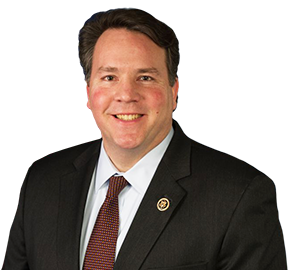The Intelligencer: Wheeling News-Register
WASHINGTON — West Virginia’s congressional lawmakers for northern and southern West Virginia submitted funding requests for projects through the new earmark system. Meanwhile, the congressman for the middle of the state submitted none.
Through the U.S. House Committee on Appropriations, 1st District Congressman David McKinley, R-W.Va., and 3rd District Congresswoman Carol Miller, R-W.Va., submitted projects for the new Community Project Funding (CPF) program, though 2nd District Congressman Alex Mooney, R-W.Va., made no requests.
The CPF program is the first earmark program since the Democratic and Republican caucuses in the U.S. House of Representatives voted in March to allow for earmarks – banned more than a decade ago due to incidents of abuse. Despite the incidents, earmarks were often an effective way to trade for votes while also providing a source of funding for projects important to constituents back home.
Eligibility for CPF requests included local governments, public schools, higher education, and non-profit 501(c)(3) organizations. Lawmakers were required to submit letters of support for the projects and evidence that the projects serve the public’s benefit.
McKinley requested more than $5.8 million for various projects in the 1st Congressional District, focused on healthcare, substance abuse treatment, transportation, water infrastructure, and economic development. In a statement, McKinley said his office received requests for funding for more than 65 projects.
“This year we were given the opportunity to take spending power away from unelected bureaucrats and put it back in the hands of elected representatives who understand the needs of the communities we represent,” McKinley said. “This does not guarantee funding for any of these projects. We are committed to find resources to help address these needs and improve the quality of life of West Virginians.”
The submitted projects include: $750,000 for a drug addiction center for West Virginia University/Potomac Valley Hospital in Keyser; $100,000 for a regional sobering center for the City of Morgantown; $350,000 for Wheeling Health Right; $580,000 for a chemotherapy infusion center at Mon Health – Preston Memorial Hospital; $1 million for the Weirton Frontier Crossing industrial access road; $750,000 for the water storage tank project for the Town of Triadelphia; $500,000 for site readiness development for downtown Parkersburg for the Wood County Development Authority; $225,500 for the Marshall County Commission’s meter project to help detect water leaks; $1.4 million for water system improvements for the City of New Martinsville; and $125,000 for evaluation of Moundsville’s main sewer trunk line.
Miller’s project funding requests focused on higher education, law enforcement needs, tourism, outdoor recreation, water infrastructure, and economic development. The total of Miller’s requests came to more than $2.7 million.
“As House Democrats are bringing back the Community Project Funding program, I will fight to ensure the people of West Virginia’s 3rd Congressional District get their fair share,” Miller said. “I am confident the projects I submitted will help strengthen our economy, increase our tourism, build up our infrastructure, and keep our communities healthy and safe. I urge the Appropriations Committee to approve them swiftly so we can continue to invest in our wonderful state.”
House members had until April 30 to submit up to 10 projects for the House Committee on Appropriations to consider funding. Members were required by transparency and accountability rules to post a list of the submitted projects on their congressional websites and the committee’s website. The committee will consider what projects to fund as part of the fiscal year 2022 appropriations bills, with the new fiscal year beginning Oct. 1.
Mooney was unavailable for comment, but Lynn Hatcher, Mooney’s communications director, sent a statement the office has sent to others seeking information about the CPF program.
“Congressman Mooney is not participating in requesting earmarks in the House of Representatives at this time. Our office will continue to advocate for West Virginia priorities in Congress during the regular appropriations process. Please reach out to our office if we can be helpful with letters of support or help you navigate the federal government.”

